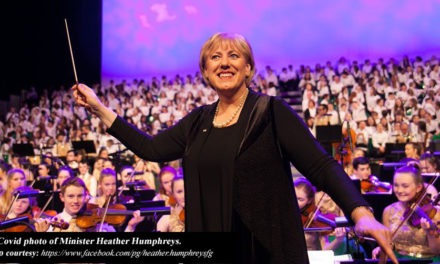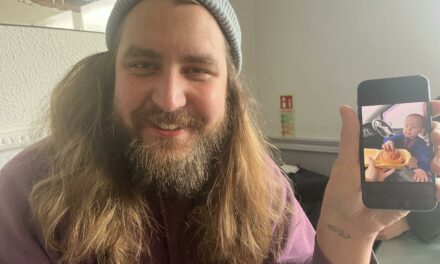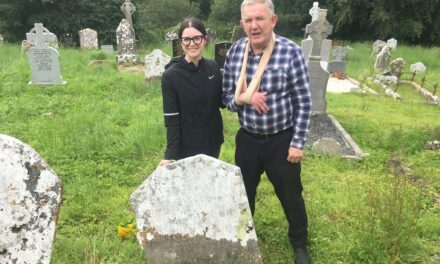The Sliabh Beagh hotel in County Monaghan is Ireland’s only community run hotel. It was set up by a group of visionary, committed locals who formed Knockatallon Development Group which spearheaded the entire project.
Remarkably, Mary Mullen, chairperson of the board of directors, says, “We never set out to build a hotel.”
“We had a parish hall here that would have been built in the 1950s that had fallen into disrepair and there would have been very little use being made of it. We had a parish priest at the time, Canon Gilsenan, who called a meeting and he stood up and he said sure we could always rent it out as an industrial unit. That got the reaction he was looking for in that people didn’t want that to happen and we set up a committee.”
“Our original intention had been maybe a bar and restaurant and self-catering accommodation, but when we talked to the like of Fáilte Ireland, they advised us that a hotel would be a better option,” she says.
Special Place
The hotel is named after a 380metre mountain straddling counties Monaghan, Fermanagh and Tyrone. It’s a remote and isolated part of the country, but what it lacks in development it makes up for with natural beauty. The area has been designated a special area of conservation and is listed under the European habitats directive. There are also numerous trails and walks in the vicinity and Monaghan County Council recently launched a plan that includes Sliabh Beagh.
The hotel opened in 2000 with funding from the International Fund for Ireland, the INTERREG programme, and the Peace and Reconciliation Fund, amongst others. It has been operating successfully since although Covid-19 restrictions have proven challenging.
Economic & Social Regeneration
The area was in dire need of economic and social regeneration and had been severely impacted by the Troubles. There were significant road closures which made access difficult. There were image problems to address as well as a dearth of public transport, employment, amenities, broadband coverage, housing and tourism. Young people were leaving the area.
John Moyna is the hotel manager and he says that, when they opened the hotel in 2000, they didn’t have “village status”. However, “The council came on board with us and put in street lighting, footpaths and a sewerage system and then a whole lot of new houses were built. It was the catalyst that brought it all together. Then back about seven years ago, we looked at adding some amenities. We built three astro-turf pitches on a piece of land beside the hotel – funded through monies raised in the hotel and through the LEADER programme.”
There were over 100 derelict houses in the area. However, thanks to community efforts, they have now been replaced and 27 new houses have been constructed.
Other amenities and services followed with the set up of a preschool and playground. The area twinned with Geel in Belgium and Prince Edward Island in Canada and that link brought visitors and tourists. Seamus Sherry, also a member of the hotel’s board of directors, states that the hotel has boosted the profile of the area and that as well as groups from Northern Ireland, England and the US, they also get a lot of visitors from Canada who “come to see their roots and where their people come from”.
Profits invested in Community
What makes the hotel unique, aside from the fact that it is entirely run by members of the community and has a voluntary board of directors, is the range of initiatives that it is involved in. Fiona Connolly is another voluntary member of the board of directors and she also runs an adventure centre. She emphasises that though the hotel is a social enterprise and a company limited by guarantee, they are still a “trading company”.
However, any profits made are reinvested into the delivery of the Community Services Programme and there’s “more flexibility to provide the facilities for meetings at a minimal rate”, because they are a social enterprise.
For instance, as well as providing local employment, the hotel also facilitates and runs a bowling club, dancing for senior citizens, a womens’ group and a Foróige group. The most impactful project however is the subsidised meals programme for vulnerable members of the community.
According to Mary, the hotel does approximately 200 to 250 Sunday lunches for locals of which about 100 would be subsidised meals for the elderly. Funding for this initiative comes through POBAL, who provide €136,000 per annum for wages.
Incidentally, Mary is dedicated to widescale community development – she is currently chairperson of Monaghan Integrated Development.
An overly ambitious plan?
John tells me that when starting out, the group were told that some of their ideas were “overly ambitious”. However, their plan was “the only one to ever fully come to fruition”. Briege McGinnity and Patricia McCrudden work in the hotel in accounts and administration respectively and tell me that a lot of people would have said they were “crazy” to consider building a hotel in the area given its remote location and lack of services.
He said that, nevertheless, the beauty of working in a community run hotel is that you do feel part of a community and that most of the business comes from “returning visitors, family events, weddings, funerals, that type of thing.”
“You know the people and even if you don’t know them well you know who they are. It’s nice for them too because, when they come through the door, they immediately feel welcome.”
Is this a model that could be replicated?
Mary says that there’s no ‘template’ that could exist for the idea and she’s “not sure that it’s something you can really advise people on”. She adds that, “You can tell us your story, but depending on where you are or what kind of area you’re in, it’s probably going to be a different story.”
Seamus points out that you need to have a lot of “buy-in” from people in the area. However, Mary adds that they would certainly be happy to assist anyone interested in replicating the idea!
BOOK NOW
A room with a view and a positive social impact! That’s what you get for your money – and much more – when you book a getaway holiday to Sliabh Beagh: https://sliabhbeaghhotel.ie





